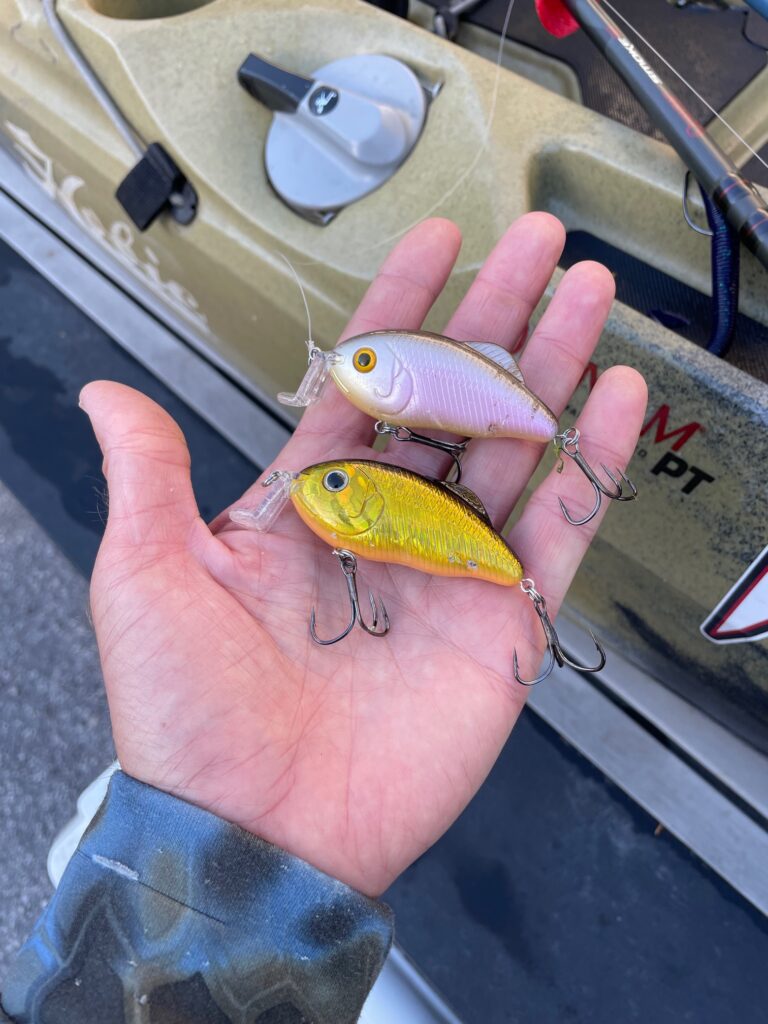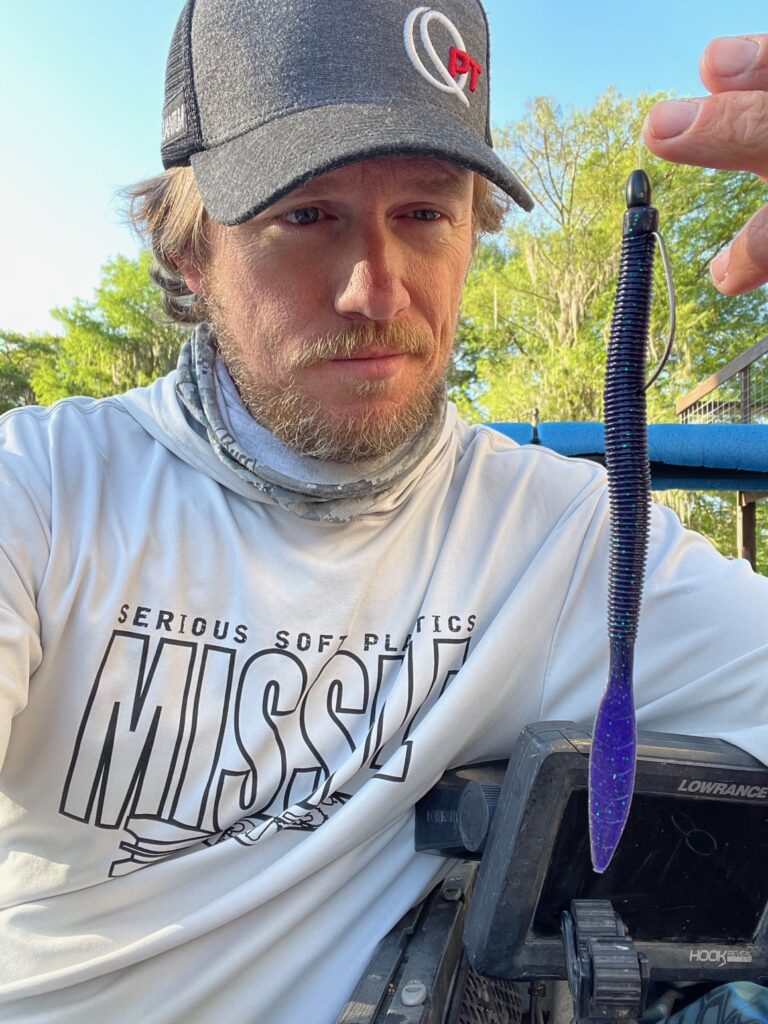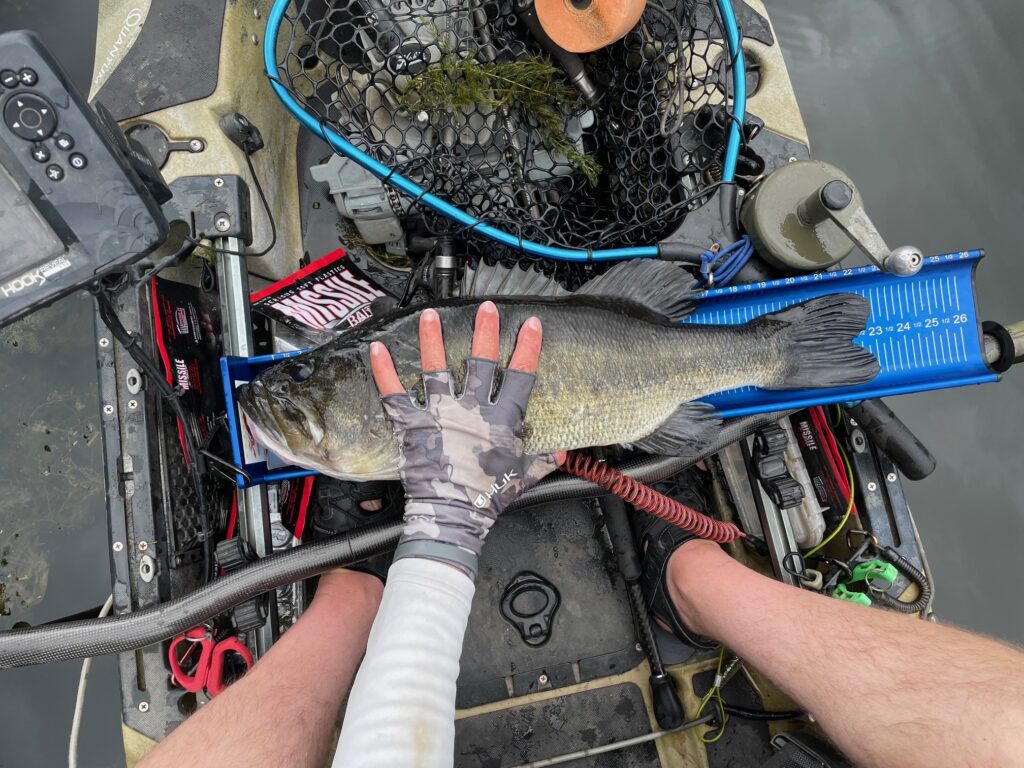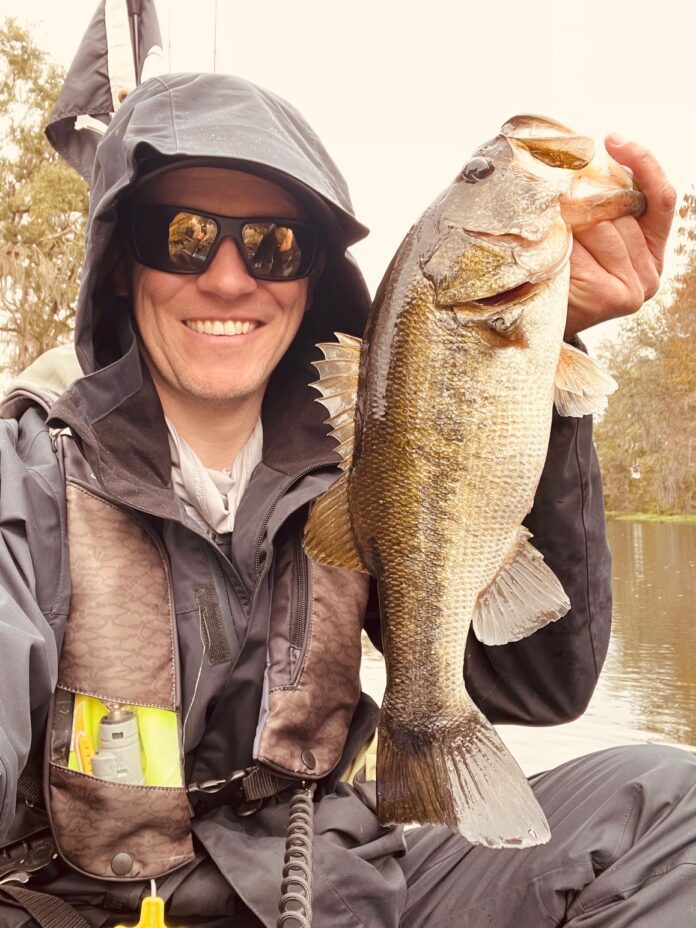Winter Sucks: Escape To Florida by Justin Largen
I’m not a big fan of winter, but it visits every year despite my objections. Air temps are in the 20s here in Virginia as I write this. No fun. It’s much worse for folks living further north, but that makes me feel only slightly better. In years past, I’d take a hiatus from fishing during the winter months. I might venture out a few times to curb cabin fever, but I was a shadow of my warmer self. Not much has changed today. I still don’t like winter. I have, however, found a way to make it suck less.
It all started in January of 2018. Virginia was experiencing a typical, cold winter, but this year was going to be different. Several weeks earlier, I had put in for time off and planned a fishing trip. It wasn’t just any trip; I was going to Florida for a week. Florida, the place where dreams come true – or was that just Disneyland? I’d read about Dean Rojas’s historic 45-pound stringer on the Kissimmee Chain – still the largest 5-fish limit in B.A.S.S. competition. I’d also seen countless photographs in Bassmaster magazine of grinning anglers hoisting double-digit Florida bass. To be fair, Virginia bass can grow to trophy size, but they’re kind of like unicorns. I’d never seen one. For Florida these giant fish seemed almost ordinary. I couldn’t wait to battle one of these behemoths from my kayak.
That first Florida visit was spectacular, and it taught me a few things. First, it can still get cold in Florida. The air was a brisk 39 degrees on the first morning, and the bite was tough. Second, I like Florida a lot. My first sunshine bass was about 15 inches, not particularly special, but fish number two and three weighed 5 pounds apiece. Third, lots of other people like Florida in January. Plan your trip and reserve lodging well in advance. Depending on where you go, lack of planning could result in a night spent in your car. The final lesson from that first visit is that 10-pound bass are considered trophies for a reason. They’re special fish, and you don’t get one just for showing up. In fact, after several visits to Florida, I’m still looking for my first double-digit bass. I’ve come close though. My personal best, a 9.5-pound giant, came during my first Florida trip. A few days later I added an 8, and I’ve landed several that topped 7 pounds on subsequent visits.
Now for a few suggestions on how to catch bass in Florida. First, don’t be afraid to try lesser-known lakes. Renowned places like Okeechobee, the Kissimmee Chain, and the Harris Chain have giant fish, but they also get lots of pressure from both recreational and tournament anglers. Florida is blessed with hundreds of smaller lakes that will never see a tournament. Almost all these quiet, little lakes are capable of producing giant fish, and you might even have the place to yourself. Check out the Florida Fish and Wildlife Commission website (https://gis.myfwc.com/BoatRampFinder/) for a list of every public ramp in the state. Also, be sure to check out the state’s Trophy Catch program too (https://www.trophycatchflorida.com/). You can find catch data for all the bass 8 pounds or bigger that have been entered in the program. This lets you see how many giant bass have been reported on the lake that you’re thinking of exploring, as well as the date they were caught, and the technique used.

My second observation is that everything in Florida looks good. Whether it’s pads, reeds, hyacinths, hydrilla, Kissimmee grass, other grasses, or even cypress trees, it all looks fishy. As good as a particular spot may look, it doesn’t necessarily hold fish. Said another way, there is a lot of dead water in Florida. You may go for long periods without a bite. But when you do catch one, there are usually others around. To find fish, I like to move quickly – usually targeting some form of grass – making lots of casts with a Chatterbait EVO or a Strike King Hybrid Hunter. I’m looking for an aggressive fish. When I catch one, I’ll drop a waypoint. Then it’s time to fish the area more thoroughly.
This is where the third and final lesson comes into play. Slow down. I love to throw moving baits, and when fish are aggressive, they can be the best tools for the job. But Florida fish can be finicky. There are many times when it takes a slow presentation to get bites. This is especially true after cold fronts and around the spawn. I’ve found success when the bite is tough using a simple, straight-tailed worm. The Missile Baits Quiver is my weapon of choice. I’ll put it on a light Texas rig – 1/8 to 1/4 oz is perfect for the Florida shallows. Sometimes I’ll cast and slowly drag my worm around grass edges. My favorite way, though, is to pitch the Quiver to fishy looking cover and deadstick it. Whether I’m targeting a clump of reeds, a hole in the grass, or a dock piling, I let my bait sit perfectly still, sometimes for 10-15 seconds. If a fish doesn’t grab it, I reel it in quickly and pitch to another target. As you might imagine, this is a slow way to fish. Because it’s so slow, it’s not a good way to locate fish. But dragging and deadsticking are great methods to catch fish once you’ve found a concentration. Bottom line, use moving baits and fast retrieves until you find fish, and then slow down to maximize your catch.

I lied. One more quick tip for you. If you’re faced with a cold front in Florida and you can find matted grass, fish it. I especially like mats that have debris blown on top of them. Broken reeds or chopped up eelgrass can be good. I get particularly excited when I find hyacinth clumps sitting on matted milfoil or hydrilla. With or without this second layer of cover, matted grass soaks up the sun and heats the water around it. Then big bass bury under the canopy in that warmer water. I love punching these mats with a big weight – 1 to 2 oz – and a Missile Craw Father. It’s one of my favorite ways to fish and a good way to catch a true giant. Florida gives me an opportunity to enjoy this technique months before the grass is thick enough back home.
Florida is special. I’ve been blessed to visit each of the last four winters, and I hope to continue the tradition for many years to come. I love escaping the cold and soaking up the sun, even if the fish don’t bite. But they usually do.


